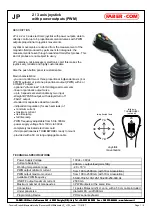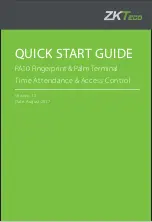
Page 5
TG0017B
Section 3: Advanced Troubleshooting
(CONT’D)
Chart 2 – No 14 V Alternator Output – Test Circuit
Figure 5 – Phase Connection 3-Pin Harness Plug
PIN CONNECTIONS
A
Phase P1
B
Phase P2
C
Phase P3
Shut off engine. With key off, engine off: Test for battery voltage of 14 V output terminal
on regulator. Does +14 V battery voltage exist?
Yes
No
Repair vehicle wiring as necessary.
Yes
Set DMM to diode tester. Connect red lead of DMM
to socket C of regulator harness plug and black
lead to each phase pin in phase harness plug. Meter
should show voltage drop value.
Then reverse meter lead connections. Meter should
show OL (blocking).
No
Alternator is defective.
Regulator is defective.
Figure 4 – Alternator-to-Regulator 4-Socket Harness Plug
SOCKET
CONNECTIONS
A
F–
B
Phase Signal AC
C
B–
D
28 V B+
R
Section 3: Advanced Troubleshooting (cont.)
Page 5
TG17C

























